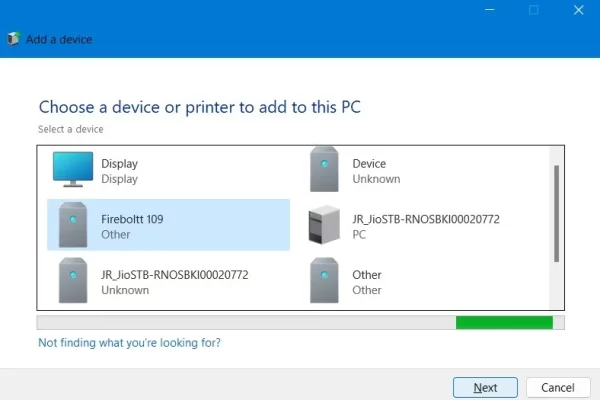The main job of a leader is to guide and direct people to achieve a common goal. A leader is an influential personality who can envision how things should be and motivate people to work towards that vision and improve things. All leaders play a crucial role in developing strategies to make people work in the best possible way and be the most efficient. How leaders lead and manage has a direct impact on whether the environment they create is one in which all individuals are able to grow. However, like other people, leaders too tend to make mistakes. There are many mistakes that leaders make that lead to their failure.
Lack Of Clarity
Educational leaders sometimes fail to give clear guidelines about their defined goals. Some of them are not even sure of their vision themselves, which significantly contributes to their failure. If leaders are unclear about what they want to achieve and what goal they are working towards, they will undoubtedly fail as they won’t be able to take the imperative measures. Educations leaders must repeatedly ask themselves questions like “where do we want to get to?” and “why are we here?” to stay on the right track and make the right decisions for the right reasons. This is why a leader will be able to move everyone together towards the school’s goals. An educational leadership degree might be of great use to help leaders overcome this problem.
Fail To Maintain Successful Relationships
An educational leader needs to have trust in his people. Trust is the foundation of any successful relationship. The lack of trust between leaders and their team members leads to inefficiency as they don’t feel comfortable with each other and are unable to take the appropriate risks.
Leaders sometimes even fail to trust the capabilities and skills of their team members and thus are reluctant to give even the slightest bit of authority. This makes the members feel secluded, and they cannot give their best in whatever task they perform.
Saying Yes to Everything
Educational leaders mostly overwork themselves and do not have a habit of refusing to anything. From arriving at work before the bell rings to working on weekends and vacations, they always have a lot on their plates. However, they are sometimes taken for granted and must refuse to do unpaid work. They must know when to say no and should save themselves from being exploited. This often leads to their failure as they work more and are paid less; hence, they should learn to say no when necessary.
Becoming Too Task-Oriented
Educational leaders have become overly task-oriented and do not support and develop people in their teams. This low level of participation from leadership sometimes results in their failure. They spend a lot of time working on their computers or reading documentaries instead of practicing active listening. Even though this job requires a lot of paperwork and a never-ending list of tasks, educational leaders must ensure interpersonal communication. These are qualities that make leaders different and effective.
Giving Feedback in Public
Delivering feedback and letting people know how they performed is very personal. Leaders must ensure that they are not giving feedback in the presence of everyone and should do this privately with each member.
Negative feedback can discourage members and make them feel embarrassed, making the feedback destructive and not constructive. Delivering feedback one on one will also help build trust between leaders and their fellow educators. Hence, delivering feedback in a group meeting can be a mistake and might cause negative emotions to arise.
Forgetting Gratitude
Leaders must remember that they are not the only ones working hard. The entire school community, including the students, teachers, and parents, is very dedicated. Underestimating and not appreciating their team members are a big reason why educational leaders fail. They let others’ efforts go unnoticed and forget that none of the progress made would be possible without even one of those people. They forget to appreciate other members when goals are being met, or scores are high. Hence, they must make sure that they appreciate people for their efforts to keep the momentum going.
Avoiding Conflict
A very big reason why leaders fail is that they start avoiding their problems instead of facing and addressing them. A good leader must get in front of a crisis and take responsibility for their actions, even the negative ones. A good leader must learn from their mistakes and avoid them in the future. Hence, avoiding conflict is never the answer as it doesn’t make the conflict disappear. Facing challenges is what makes a leader successful.
Not Looking Outside of Education for Answers
Educational leaders tend to stick to the curriculum only and rely less on outside information and research. Sticking to the regular curriculum limits knowledge of the members, and they do not have access to never-ending information. This limiting of members and leaders leads to their failure.
Being Shy About Their Success
Educational leaders also sometimes fail and don’t appreciate themselves for the hard work they put in. Instead of embracing it and shining under the spotlight, they tend to run and hide. They don’t let their successes and achievement reach their students and thus are unable to climb up the ladder in their field.
Overconfidence
Overconfidence sometimes leads to the failure of educational leaders too. When they reach a certain stage in their career, they start feeling like they aren’t prone to making mistakes anymore, which is not the case. They can still make mistakes, and facing and overcoming them is important. To overcome this, they must work on personal development and be open to all types of criticism to improve themselves and do better.
To conclude everything that’s been stated so far, very successful leaders can also fail. They might not possess a certain skill to deal with a specific problem or lack communication skills. However, all of these can be overcome with leadership evaluations and constant self-improvement.





